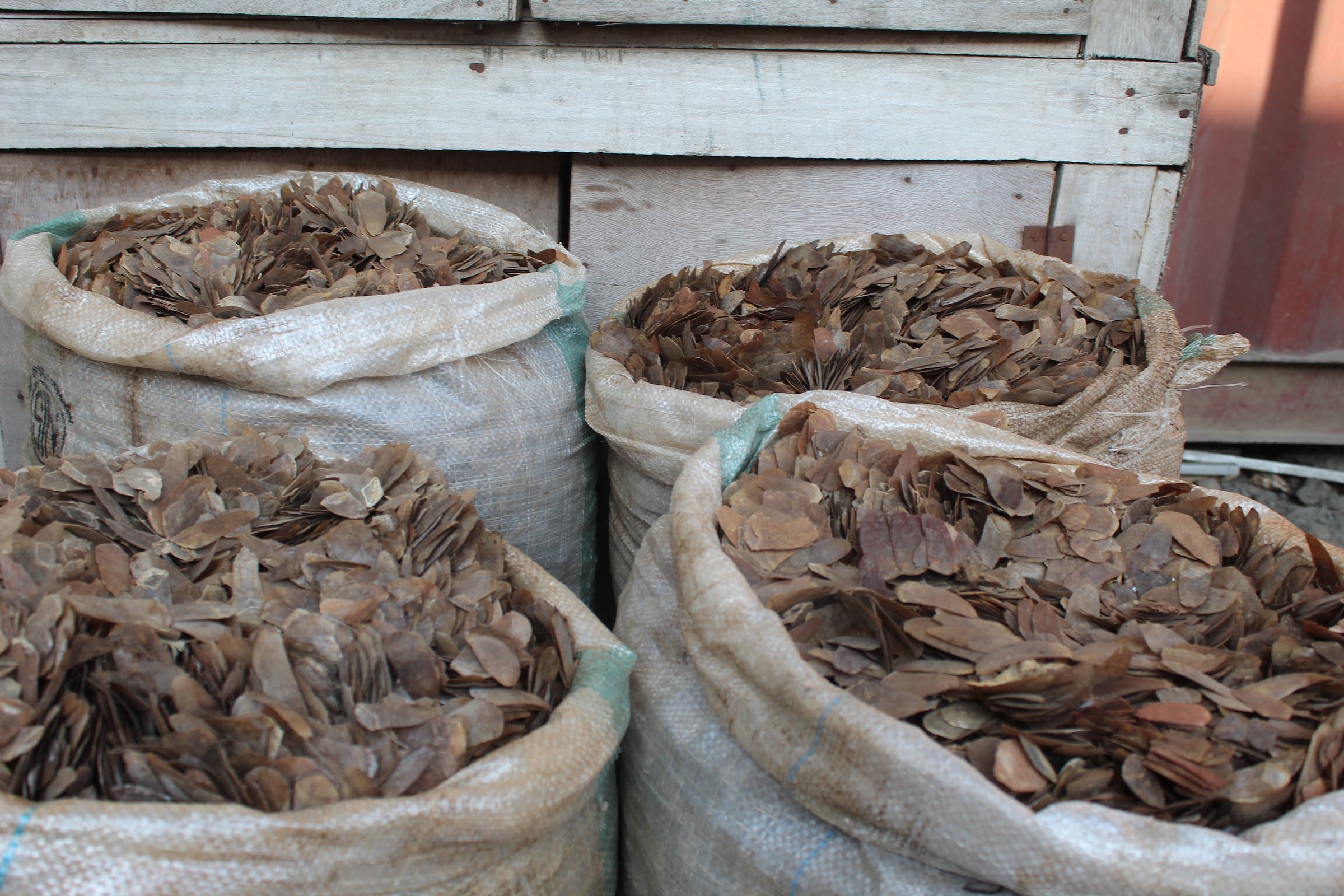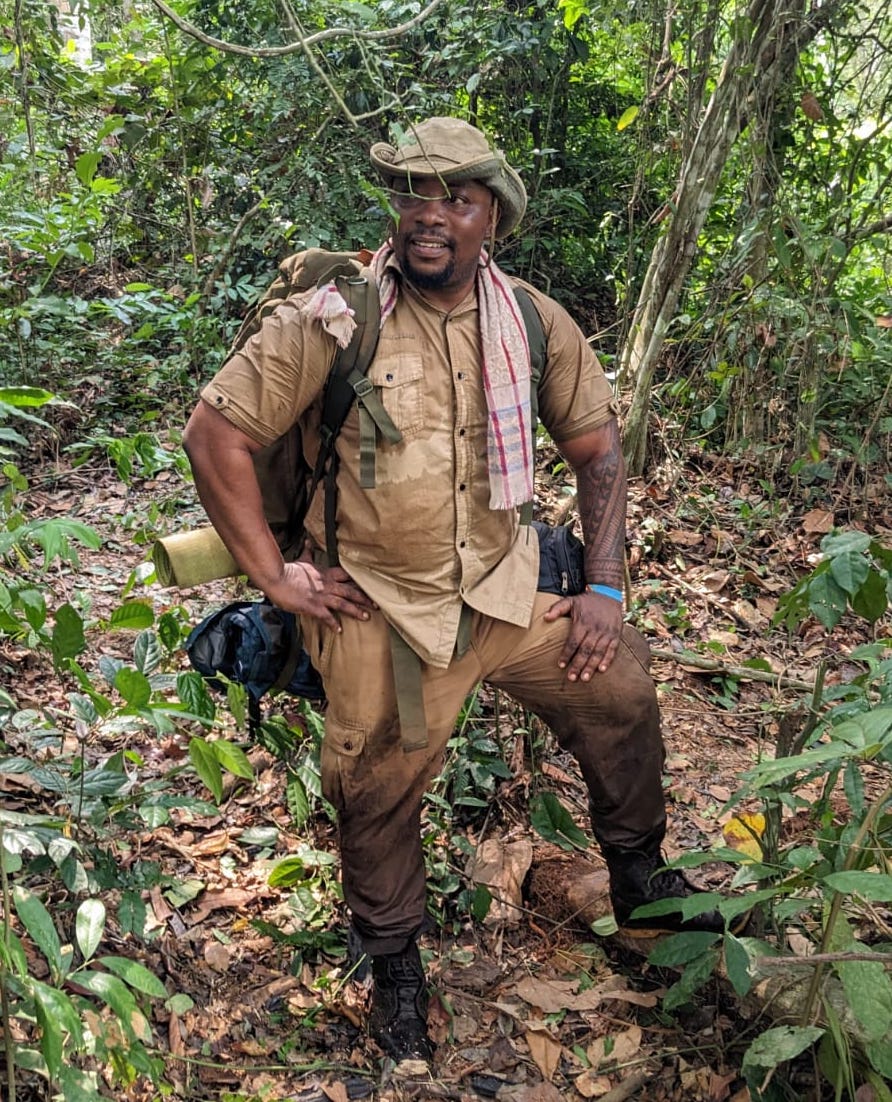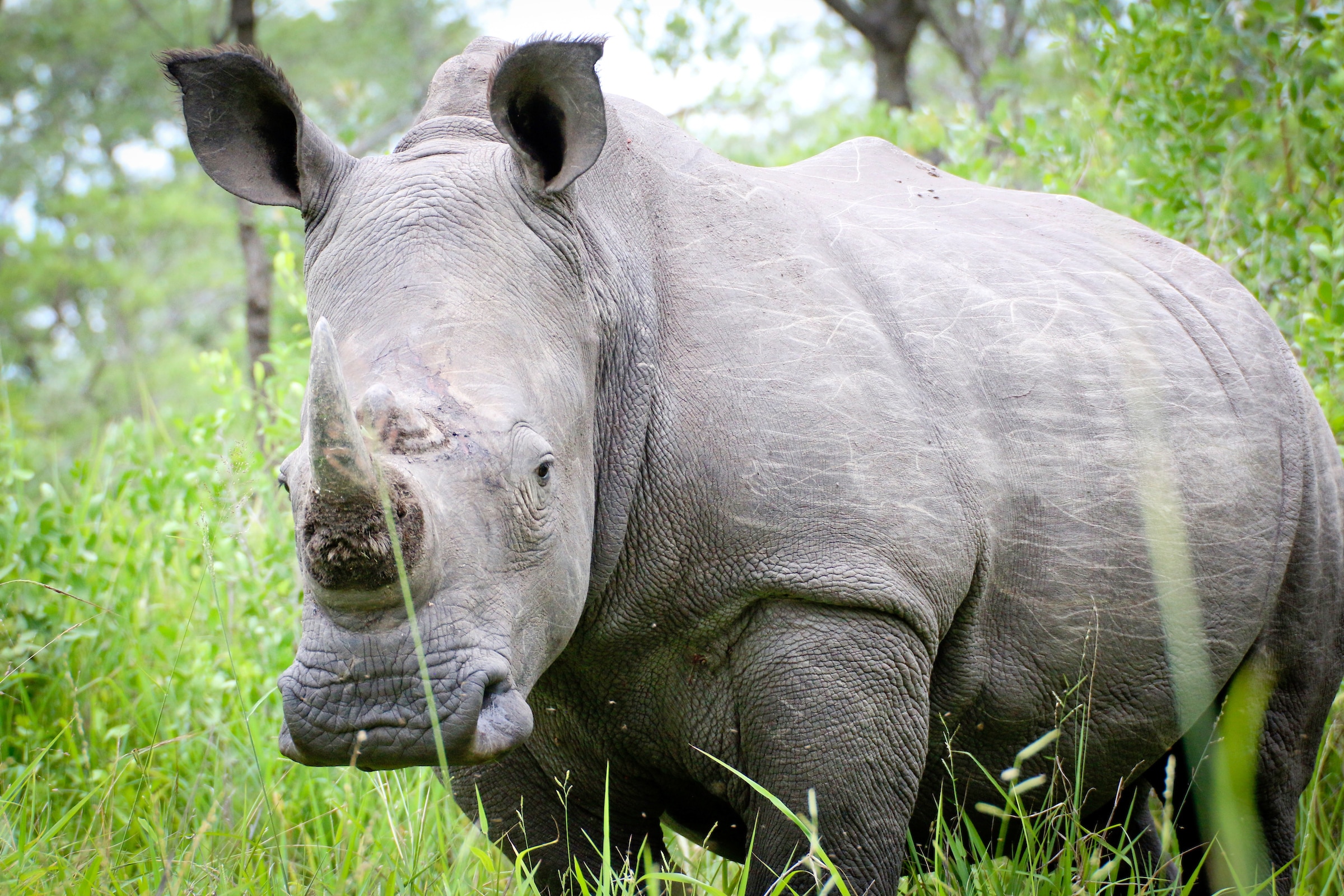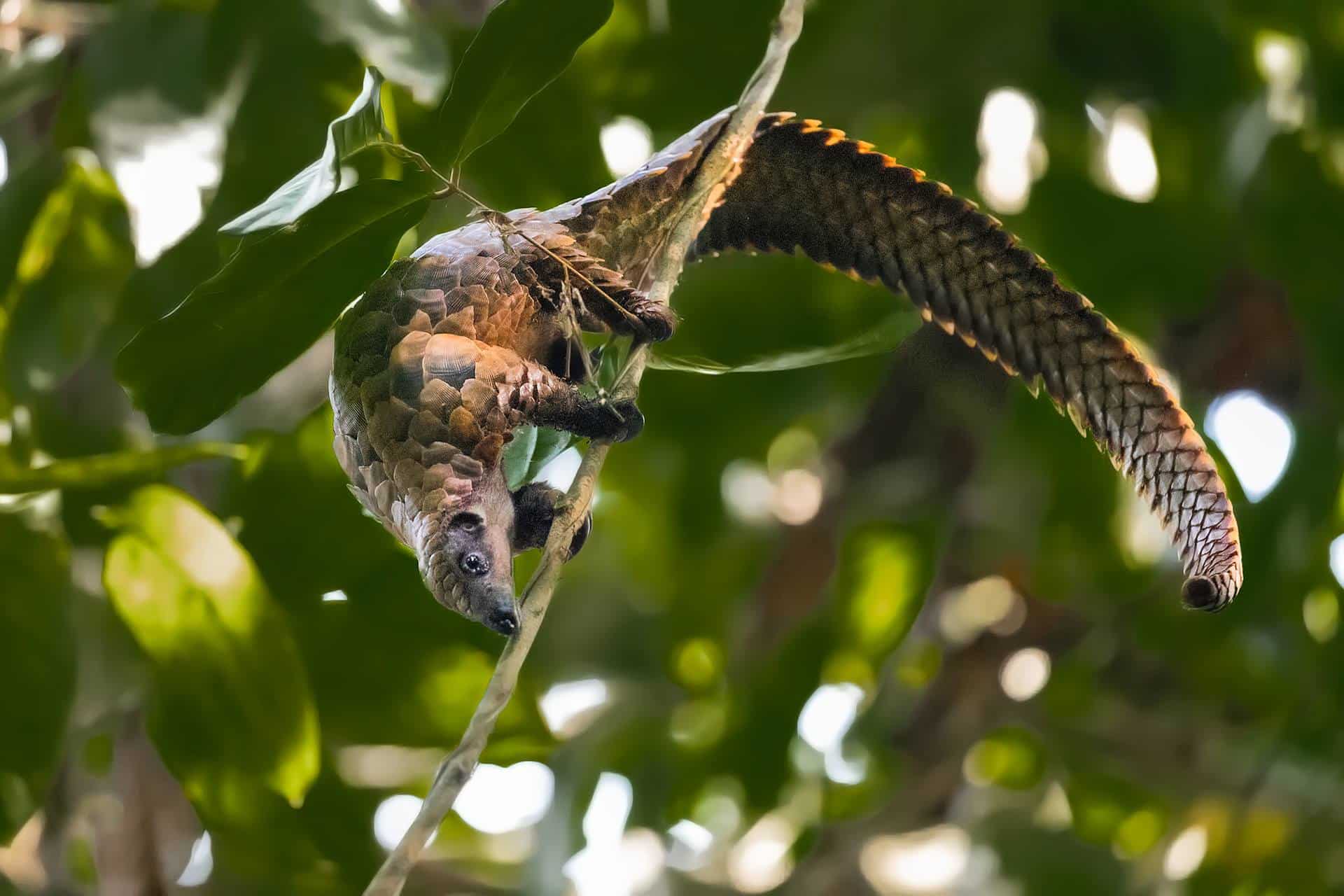The crunch of twigs and dry leaves announced Adams Cassinga’s arrival as he stepped into the forest clearing. It was midday when he joined his team of community rangers, who were gathered near bushels of pangolin scales, rhino horns, and elephant tusks clustered like blemishes. Alongside this gruesome haul sat three men in handcuffs surrounded by police. Wildlife criminals have transformed the Democratic Republic of the Congo (DRC) into a major illegal trafficking ground, and with backing from the Rhino Recovery Fund (RRF) and the Pangolin Crisis Fund (PCF), Adams is focusing his organization, Conserv Congo, on supporting authorities in the fight against this destructive trade.
Conserv Congo specializes in gathering information for law enforcement to counter wildlife criminal networks in the DRC. As a former investigative journalist, Adams knows the value of information when tackling complex issues, so Conserv Congo has cultivated a network of local investigators to update them on poaching activity and trade routes. This makes Conserv Congo key to helping authorities understand the scope and methods of trafficking networks. The DRC has become a haven for wildlife criminals who poach within the country and traffic illegal wildlife products to Asian markets from as far away as South Africa. Rhinos and pangolins are two particularly targeted species, since their horns and scales are highly sought for traditional Asian medicines. This is why it is strategically important for the PCF and the RRF to invest in preventative measures in this trafficking hotspot.
Seeing an opportunity to make the greatest possible impact against trafficking syndicates, the PCF and the RRF began jointly supporting Conserv Congo’s work in 2022. The DRC is home to three pangolin species, a small white rhino population, and contains some of Africa’s largest, most biodiverse rainforests—all species that share these habitats benefit from Conserv Congo’s anti-trafficking work. By helping authorities intercept traffickers and confiscate illegal wildlife products, Conserv Congo is disrupting the flow of these products abroad and making it more difficult for criminals to use the DRC as a transit hub. PCF and RRF support is also helping Conserv Congo increase their organizational infrastructure, making them more resilient and adaptable to evolving criminal activity.
Information supplied to law enforcement by Conserv Congo and their partners has led to the arrest and prosecution of 65 high-level wildlife criminals in the DRC and Zambia, many of whom trafficked rhino horns. By infiltrating criminal networks and studying their patterns, Adams and his team can give the DRC government a variety of ways to pursue them. These sting operations are highly confidential, as secrecy is required to ensure that traffickers are caught unaware. Since 2013, Conserv Congo has aided in the seizure of nearly 10,000 lbs. of pangolin scales, over 7,000 lbs. of elephant ivory, and many other illegal wildlife products.
As the police escorted the poachers away, Adams helped gather their contraband to be locked up or destroyed, hoping that today’s arrest made the DRC’s forests a little safer for wildlife. With PCF and RRF support, Conserv Congo will expand their capacity to protect endangered species from global networks of criminals who would reduce them to commodities.





